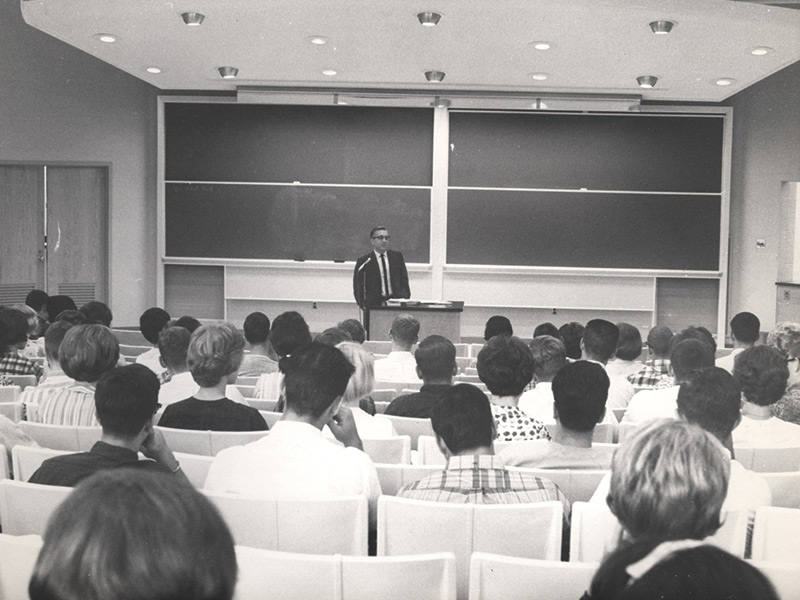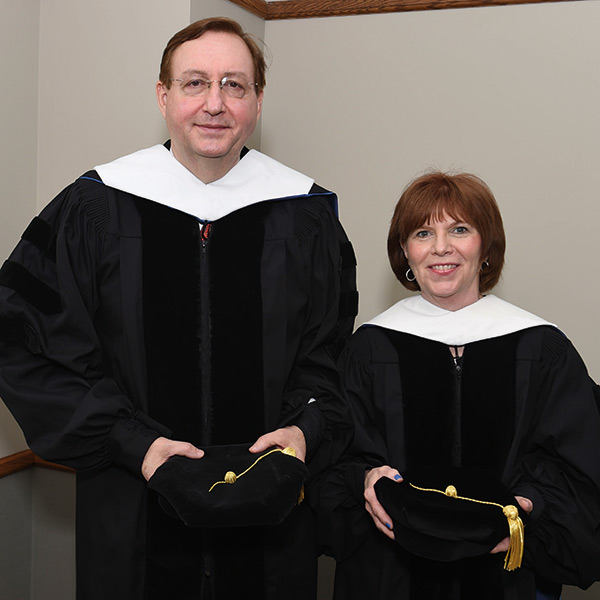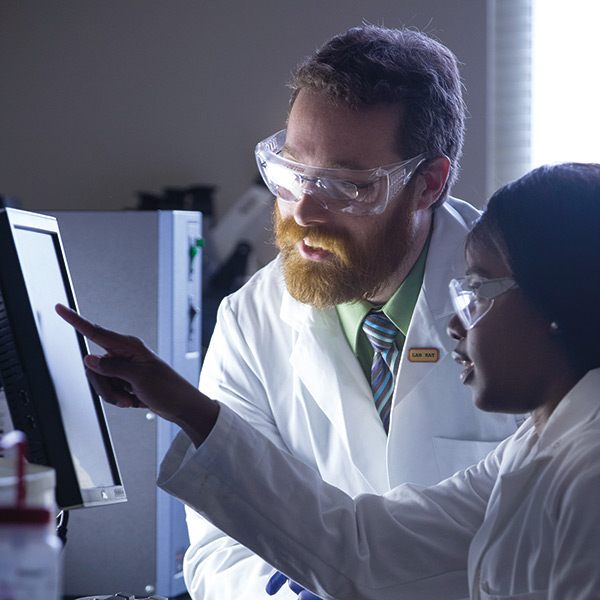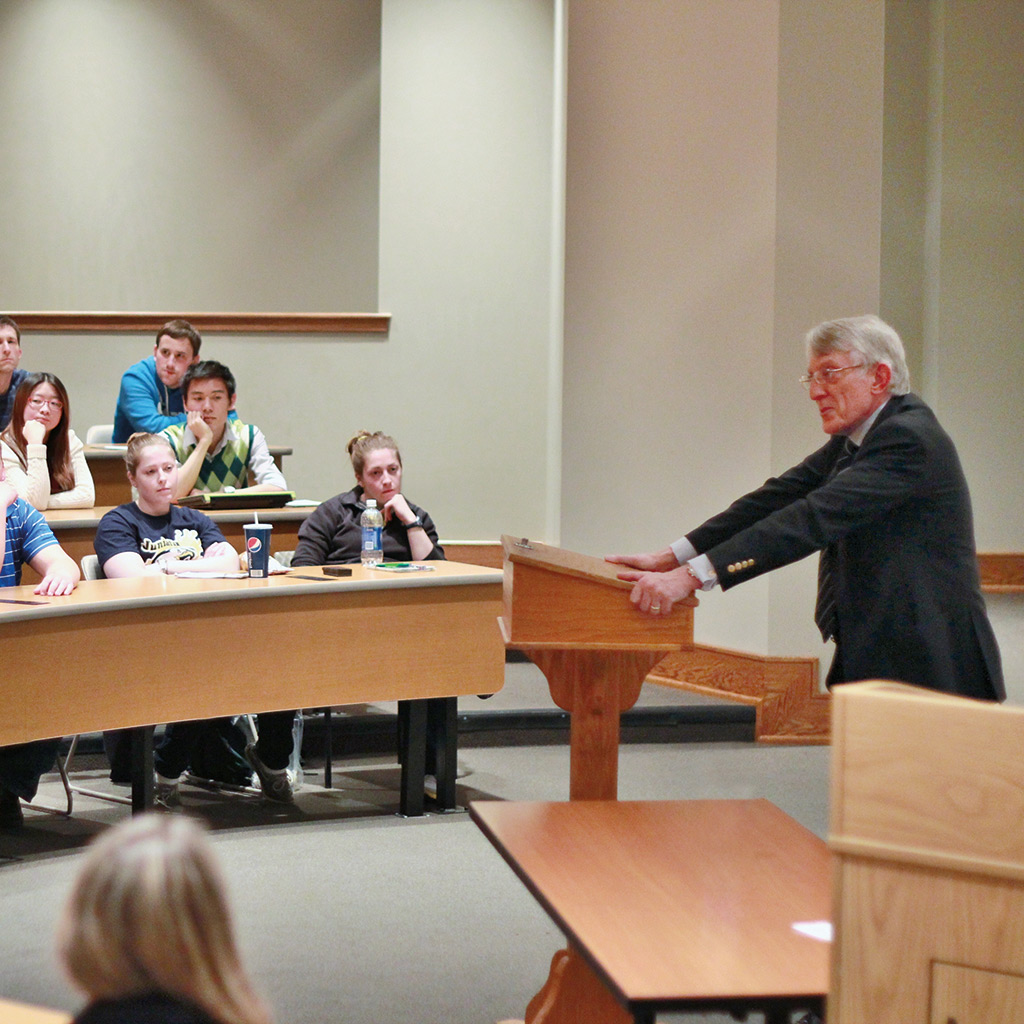Colleges and universities face a similar challenge as they are tasked with meeting the needs of a changing demographic of students and career fields.
The answer at Juniata? Pivot.
The Pivot Team was created to advance a culture of innovation and entrepreneurship to accelerate Juniata’s ability to strategically meet the changing needs of the higher education marketplace and its students. It is composed of members of senior leadership, administration, faculty, alumni, students, and trustees.
“When people think of the word ‘pivot’ they think of massive change. Organizations like colleges and universities don’t do massive change; they do incremental changes,” says Carl Glaeser ’77, vice chair of Juniata’s Board of Trustees and member of the Pivot Team. “After a trustee retreat, we began talking about the potential of working with a multidisciplinary team at the College to see what we could do.”
Carl met his wife, Nancy ’76, during his first year at Juniata. He earned his degree in economics and political science and credits faculty members including James Lakso, Charles “Bud” Wise III, the late Ronald Cherry ’53, Betty Ann Cherry, and President John Stauffer as giving him a deep appreciation for the value of a liberal arts education.

“You learn how to think, you learn how to act, you learn basic things about life, and you can apply that to many areas,” he says. “I’ve worked in various industries, but being able to think globally and act locally—you can get very far with that.”
Carl is very active in helping underserved populations by founding and running the non-profit, GT Water Project. This project serves families, with a focus on women and children in Haiti and Honduras, by providing a water filter program and creating sustainable, clean drinking water.
Some of the initiatives to come out of the Pivot Team are Juniata’s growing programs to meet the needs of the local community, an innovative list of 3+1 programs, which allow students to complete both an undergraduate and graduate degree in four years, and several steps toward creating a more sustainable campus.
“We are trying to revitalize and work toward improved sustainability and what can be done in the short term,” says Carl. “We want to complete visible projects on campus that will benefit both the College and the community.”
The work of the Pivot Team is centered upon optimizing the student experience at Juniata.
“We are in a changing geopolitical environment that will impact colleges over the next 10 years,” Carl says. “Our student base is changing and we need to change with that. With any organization that has been around for over 150 years, you’ll find that the model is sometimes not current with its environment. You have to look to see how it can be made better for everyone, especially our student base. It’s not like we are moving 180 degrees; we are moving five degrees at a time.”
Fred Mason ’73 and his wife, Karen, have taken a focused interest in Pivot’s sustainability initiatives and will lead the way through their estate to support initiatives in green chemistry.
“Green chemistry is a different way of thinking about how chemistry and chemical engineering are done to design, develop, and implement chemical products and processes,” Fred says. “Following the principles of green chemistry enables scientists and engineers to find creative ways to reduce wastes, conserve energy, and discover replacements for hazardous substances.”
After graduation from Juniata, Fred worked in economics, finance, and strategy. His interest in chemistry began while serving on the board of the H. John Heinz III Center for Science, Economics, and the Environment. As he met with fellow board members and heard from top researchers in the field, Fred’s awareness of the damage to human and environmental health from chemical pollutants grew, as did his desire to act upon that knowledge.
“We believe strongly in the value of a liberal arts education as the basis for context, perspective, and the integration of knowledge,” says Fred, explaining his drive to begin the program at Juniata rather than a major research university. “Juniata has the strengths through the chemistry, environmental, and other science programs.”







